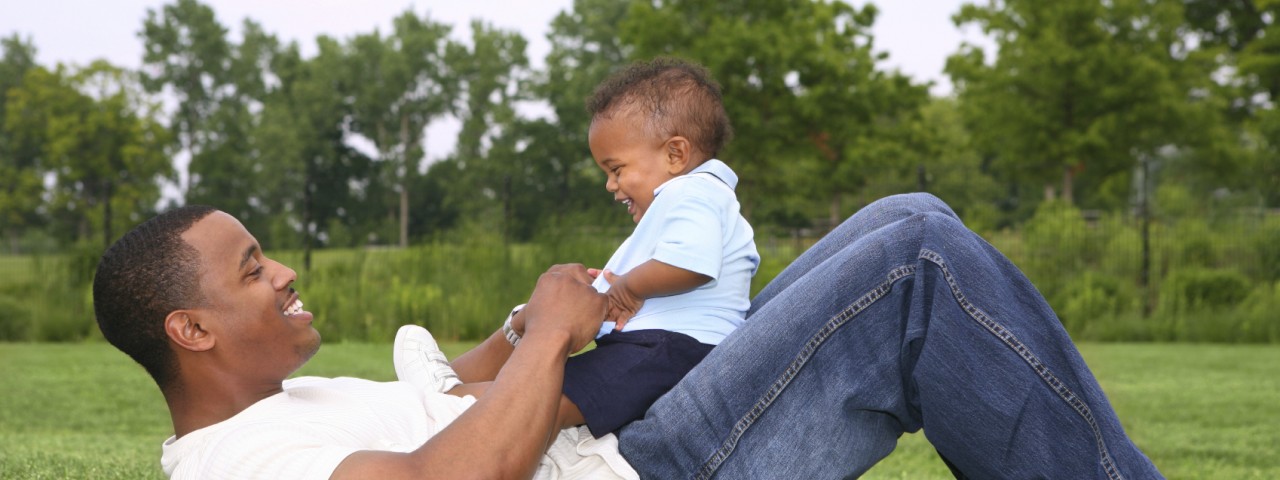First Year, 0-12 Months
During the first year of a child’s life, his brain will double in size. Much of this growth occurs in a part of the brain called the cerebellum, which is in charge of physical development and motor skills. This development helps babies learn to control their bodies and movement. They learn to hold up their heads, to roll over, grasp objects, and even to stand up. Meanwhile, the visual cortex, the part of the brain that helps us see, changes rapidly, and your baby starts to recognize faces. Next, the limbic structure, the part of the brain that controls emotion and long-term memory, begins to develop, helping your baby become more aware of the world around him.
Signs of Healthy Development *
- Your baby loves to look into your face. He tries to mimic your expressions, and loves to play peek-a-boo.
- He has a healthy appetite, and is growing between well-baby visits.
- He responds to familiar faces.
- He starts to babble and to make a range of impressive sounds.
- He starts to lift his head, to roll over, to crawl, and – closer to the end of the first year, pulls himself to a standing position.
Language And Literacy
Children are learning about language even during the first few months of life. Newborns use body language, sounds, and facial expressions to express their wants and needs.
What You Can Do to Help:
- Talk softly to your baby in a calm and soothing voice using normal speech and words.
- Respond to your baby’s sounds.
- Show delight when she coos and babbles.
- Use your baby’s name when you speak.
- Your baby’s crying tells you she needs something.
Thinking Skills
During his first year, your baby is starting to learn about important ideas like cause and effect. He is also developing a sense of safety and security.
What You Can Do to Help:
- Infants and toddlers learn through play. When your baby drops your keys, for example, she wants to see how you will respond.
- Play along with her to encourage her to explore and learn.
- Be very patient and have a sense of humor when playing with your baby.
Self Control
Newborns have very little, if any, self-control. It is natural for infants to fuss when they are frustrated. Their tantrums and cries just reflect their developmental stage, not that they are spoiled.
Babies use crying as a way to let parents know that they need something. Your baby needs you to show your calm love and support.
What You Can Do to Help:
- To encourage her self-control, it is helpful for you to stay calm and to show her how to act.
- Your child won’t be the first (or last) to cry at the grocery store, restaurant, or other very public place. Remain calm, try to sooth her, and walk outside with her if you have to.
- Babies thrive on routine. When she can count on regular naptimes, cuddling, diaper changes and feedings, her level of self-control will begin to develop.
Self Confidence
Newborns begin to develop self-confidence when they feel loved and safe.
What You Can Do to Help:
- Comfort your baby when she cries and respond to her needs.
- Make her feel loved by holding her close and speaking softly to her.
- Cheer for her and smile at her as often as possible. Let her know that she is adored.
